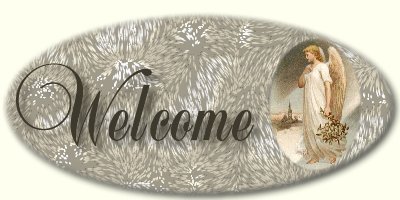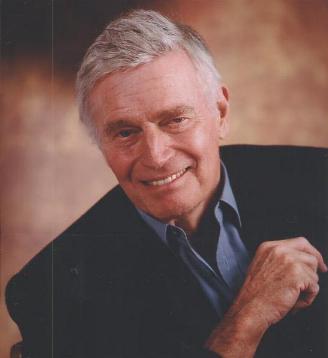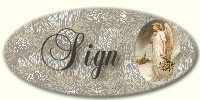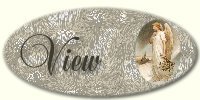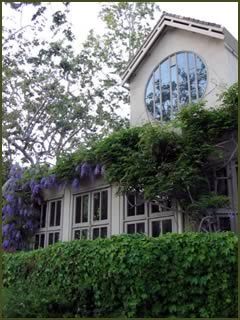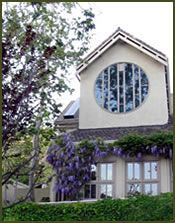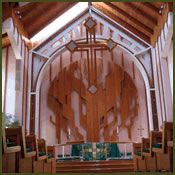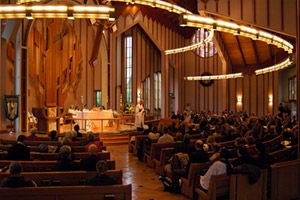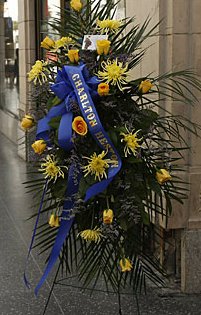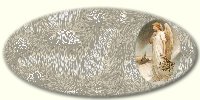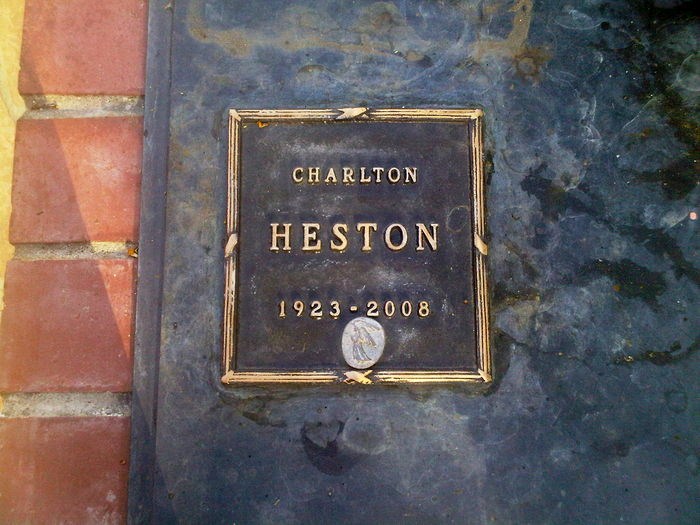A
MEMORIAL TO
MR. CHARLTON HESTON
October 4, 1923 - April 5, 2008
From "The Tempest"
By: William Shakespeare
Be cheerful, sir.
Our revels now are ended. These our actors,
As I foretold you, were all spirits and
Are melted into air, into thin air:
And, like the baseless fabric of this vision,
The cloud-capp'd towers, the gorgeous palaces,
The solemn temples, the great globe itself,
Yea all which it inherit, shall dissolve
And, like this insubstantial pageant faded,
Leave not a rack behind. We are such stuff
As dreams are made on, and our little life
Is rounded with a sleep.
Charlton Heston, the two time Oscar winner who portrayed Moses and other heroic figures on film
in the '50s and '60s and later
championed conservative
values as head of the National Rifle Association, died on April 5, 2008. He was 84.
"Mr. Heton died at his home in
Beverly Hills, CA with his wife, Lydia, at his
side," family spokesman Bill Powers said. He
declined to comment on the cause of death
or provide further details.
"To his loving friends, colleagues and fans, we appreciate your heartfelt prayers and support. Charlton Heston was seen by the world as larger than life," the Heston family said.
"He was known for his chiseled jaw, broad shoulders and resonating voice, and, of course,
for the roles he played. Indeed, he committed himself to every role with passion, and pursued every cause with unmatched enthusiasm and integrity. We knew him as an adoring husband,
a kind and devoted father, and a gentle grandfather, with an infectious sense of
humor. He served these far greater roles with tremendous faith, courage and dignity.
He loved deeply, and he was deeply loved.
No one could ask for a fuller life than his. No man could have given more to his family, to his profession, and to his country. "
Heston's family said in a statement.
Charlton Heston assumed the role of leader offscreen as well. He served as president of the Screen Actors Guild and chairman of the
American Film Institute and marched in the
Civil Rights Movement of the 1950s.
Former First Lady Nancy Reagan said in
a prepared statement that she was heartbroken to hear of Heston's death. "I will never forget
Chuck as a hero on the big screen in the roles he played, but more importantly I considered him a hero in life for the many times that he stepped up to support Ronnie in whatever he was
doing," she said.
The National Rifle Association of America's Wayne LaPierre said,
"America has lost a great patriot."
President Bush awarded Heston with the Presidential Medal of Freedom, the nation's highest civil honor. "He was a man of character and integrity, with a big heart," Bush said in
his statement after learning of Heston's death.
Publicist Michael Levine, who represented
Heston for about 20 years, said the actor's
passing represented the end of an iconic
era for cinema.
"If Hollywood had a Mount Rushmore, Heston's face would be on it," Levine said.
California Governor Arnold Schwarzenegger released the following statement regarding the death of Charlton Heston:
"Maria and I were deeply saddened to learn of Charlton Heston's death. Charlton entertained millions of people around the world during his legendary film career and his many
larger-than-life roles will live on forever. He
cared deeply about his craft and he loved his family, his work and his country with
all his heart."
Besides son Fraser, the Hestons have a daughter:
Holly Ann, and grandchildren. The couple celebrated their golden wedding anniversary in 1994 at a party with Hollywood
and political friends.
Charlton and Lydia had been married 64 years
when Mr. Heston died.
The Heston family held a memorial service for
Mr. Heston at Episcopal Parish of St. Matthew's Church where he regularly worshipped on
April 12, 2008
(See Below or CLICK HERE for Details of the Service)
In Mr. Heston's own words,
"I have lived such a wonderful life!
I've lived enough for two people."
Please Click the
'SIGN'
Button Below to Leave a
Sympathy Message
for the
Heston Family
to Read
The Heston family has requested that, in lieu of flowers, donations be made to the
MPTF
22212 Ventura Boulevard, Suite 300
Woodland Hills, CA 91364
CLICK BOTH 'VIEW' BUTTONS BELOW TO SEE
ALL MESSAGES LEFT FOR THE HESTON FAMILY
"GOD'S OWN VOICE"
By: James A. Brandes
Written 6th of April 2008
In Memory Of
"Charlton 'CHUCK' Heston"
(Born: John Charles Carter)
4th of October 1923 – 5th of April 2008
"We are such stuff as dreams are made of"
Because we were created by the GREATEST DREAMER of ALL
For only GOD could create a DREAM
Wherein not a single person is considered small
Yesterday, we lost the man who often quoted this line
Charlton "CHUCK" Heston
A Very Dear Friend of Mine
As a writer I can tell you, "It's TRUE"
NEVER can anyone scribe a collection of words
That could even begin to relay how we feel; knowing what from "CHUCK" we've heard
He defended TRUTH and WORTHY CAUSES; way before it was the popular thing to do
A "True Renaissance Man"; of awesome valor
Who to his own self; forever remained TRUE
A man; although caught in the main stream of Hollywood
To his wife Lydia and children, remained always there
LOVINGLY at their side, proving how much he cared
HEAVEN awaits him with out stretched arms
With a trumpeted fanfare
Beyond even that of a "Chariot Race's Charms"
I thrill to know, CHUCK will now find
Answers to the many questions
He has left behind
This "Giant Intellect" who willingly shared with us all
What I'm positive was to him
GOD'S GREAT CALL
As last night; I'm sure he heard the best words of all
"COME HOME MY SON"
As he responded to GOD'S final CALL
OH Yes; we as humans we'll grieve beyond words
Until our turn comes
These wonderful words to have heard
I know my friends
It will soon be
GOD will utter these words to me
But, the fact remains awesomely true
Time could run out
For any of you
I would just PRAY
Each of you find
You lived as did, Charlton Heston; knowing real peace of mind
Like Paul, in Scripture
You've properly run life's race
And can claim your reward through "GOD'S DIVINE GRACE"
So as SCRIPTURE admonishes
Let us cry at a birth; but now at this death "REJOICE"
As we hear GOD'S WORDS to Chuck, "WELL DONE"
IN
"GOD'S OWN VOICE"
Copyright © 2008
Permission has been granted by Mr. James A.Brandes to use his poem at:
“CHARLTON HESTON WORLD”
Please visit his website at the links below:
Mr. James A. Brandes' personal reading of his poems on YouTube--Click Here
A SPECIAL THANK YOU IS GIVEN TO:
MR. JAMES A. BRANDES
FOR HIS GENOUROUS DONATION TO
CHARLTON HESTON WORLD WEBSITE,
FOR PAYING FOR ADDITIONAL
BANDWIDTH TO HELP KEEP THIS
WEBSITE OPEN AND ONLINE
Memorial Tributes to Mr. Heston
Please Click the Links Below:
Memorial Church Services for
Mr. Charlton Heston
was held on April 12, 2008
at the
Episcopal Parish of St. Matthew's Church where Mr. Heston regularly
worshipped and attended Sunday services
since the early 1980s. The service lasted almost two hours.
Mr. Heston's remains were cremated,
and the family had a small private
ceremony before the memorial service.
Three hundred or so of Mr. Charlton Heston's
closest friends gathered to say farewell to a great man
at his home church in Pacific Palisades, CA. It was
a remarkably bi-partisan affair: Nancy Reagan sat
between Tom Selleck and Governor Arnold
Schwarzenegger in the second row directly behind
Heston's wife Lydia, son Frasier and daughter Holly,
while directors Rob Reiner and Oliver Stone brought
up the rear. In between were other friends like
Pat Boone, Keith Carradine, Wayne LaPierre,
Olivia DeHavilland and others.
Frasier Clarke Heston gave a particularly poignant
eulogy. He talked about his father's devotion to
America saying, "He loved his country. He was the
finest man I've ever known. "
Then speaking directly to his father, added:
"You did your best; You kept your promises."
Several eulogies were delivered, including one by Shakespearean actor Julian Glover and also by
Mr. Heston's daughter, Holly Heston Rochell. She
recalled her father's love for Shakespeare and Tennyson
by reciting two poems he loved by them. Fraser Clarke Heston reminisced about his father's fondness for tennis.
Mr. Heston's pastor, Rev. Michael Scott Seiler, who officiated at the services, gave the homily stating, "I certainly knew him as a great gentleman of great
warmth and hospitality." Also that Mr. Heston had been
a "faithful member of our flock." "Mr. and Mrs. Heston
felt comfortable here," Rev. Seiler said. "There was a
sense that they were a part of our community in a very wonderful and ordinary way." Gesturing to the
seat where he said Mr. Heston sat every Sunday,
Rev. Seiler told the audience how difficult
it had been for him to preach from Exodus
Chapter 3 with the man who had famously played
Moses sitting there in front of him. "There was the one
time when I had to read from the text of Moses and the burning bush and there 'he' was near the front row,"
Rev. Seiler said, chuckling,
"The irony was not lost on either of us."
While all funerals are typically 'religious', Mr. Heston's
was especially so. There were a number of hymns and liturgical readings and at one point the celebrant personalized things, noting, "Lord Jesus Christ, we commend to you our brother, Charlton, who was reborn
by water and the Spirit in Holy Baptism. Grant that
his death may recall to us your victory over death,
and be an occasion for us to renew our trust in
your Father's love."
Each attendee was offered Holy Communion, or,
if they preferred, a 'blessing', and bagpipes playing
"Amazing Grace," closed the service.
Attendees reconvened at Mr. Heston's beloved home
for home videos, a live band, food and pictures of the
man of the hour. Receiving a booklet which included
a letter Chuck had written in
February 1998 addressed simply:
"To whom this will inevitably concern."
Mr. Heston had the last words below in his letter:
"I hope my wife..will reject embalming. I've worn
makeup all my life. I'd like to avoid it in death.
I would prefer cremation, followed by a simple service...
a wake in our home with our friends would be nice,
sharing some good wine and the more plausible
'memories of Chuck' in the remote chance I might be hanging around in some sentient form.
I'd enjoy that enormously.
Closing remarks?.......
Shakespeare was a master of both the elegiac and the
wry; Here's Falstaff: 'Every man owes God a death.
He that pays today is quit for tomorrow.'
No, I can't pre-empt Shakespeare for my
small departure. It's tacky.
I'll quote Groucho Marx instead:
'It happens to everybody. It's not such a big deal.' "
Charlton Heston
PHOTOS BELOW OF
THE EPISOCOPAL PARISH OF ST. MATTHEW'S CHURCH
WHERE MR. HESTON'S MEMORIAL SERVICE WAS HELD
 | ||||||
PHOTO ABOVE WAS TAKEN DURING A NORMAL
SUNDAY SERVICE-NOT DURING THE MEMORIAL
PHOTO ON THE RIGHT TAKEN OF
FLOWERS HONORING
CHARLTON HESTON'S
'STAR' ON THE
HOLLYWOOD WALK OF FAME
 | ||||||
EULOGY
FOR CHARLTON HESTON
By Fraser C. Heston
'My father asked that we read this poem at his memorial.'
Reading:
“CROSSING THE BAR”
BY
ALFRED, LORD TENNYSON
Sunset and evening star,
And one clear call for me!
And may there be no moaning of the bar,
When I put out to sea,
But such a tide as moving seems asleep,
Too full for sound and foam,
When that which drew from out the boundless deep
Turns again home.
Twilight and evening bell,
And after that the dark!
And may there be no sadness of farewell,
When I embark;
For tho' from out our bourne of Time and Place
The flood may bear me far,
I hope to see my Pilot face to face
When I have crossed the bar.
EULOGY
In Act 3, Scene 2 of Shakespeare’s Julius Cesar,
Mark Antony stands before the assembled throng,
and cajoles them into hearing his now famous eulogy
for his great and departed friend. I hope the Bard and my father will forgive me for mangling his words
to my own purpose, when I beg you all,
friends, family and countrymen to lend me your ears,
for I come to praise Mark Antony, not to bury him.
Thank you all so much for coming. The outpouring of
kind thoughts and gracious prayers has been all but overwhelming these last few days,
our hearts are full to bursting.
If the measure of a man can be taken not only by the
scale of his achievements, but more significantly by
the quality of his friends, then let my father be judged
by the presence of those here today in the sight of God.
You enriched his life beyond measure, and I know that
he would want me to thank you for your undying
friendship, love and devotion, on this day, of all days.
Charlton Heston was born, in 1923, in a small town
north of Chicago, which he called No Man’s Land,
Illinois, in the heart of this great land. 84 years, one Depression, one World War, half a dozen regional
conflicts, about 80 films, dozens of plays, countless TV programs, hundreds of speeches, a handful of acronyms (AFI to NRA to SAG) a passel of presidential campaigns, six million tennis sets, five books, two kids, three grandchildren and one marriage later, he departed this world after a six-year struggle with a fatal illness,
on a quiet spring evening, in the arms of his family,
in his home on a ridge in Los Angeles.
All-in-all, that’s a pretty good run, for a shy kid
who grew up in the backwoods of Michigan.
His life as an artist, soldier, actor, writer, director, sportsman, statesman, advocate and patriot on the
world’s stage are well documented. It’s not my purpose
to expand upon the enduring legacy of a career which bestrode America from Hollywood to Washington,
from Cecil B. DeMille and William Wyler to
Dr. Martin Luther King and President Ronald Reagan.
Rather I would speak of him as a man. For it was not
as one of his iconic, Old Testament characters that those
of us who knew him will remember him, but rather as
a loving, New Testament, father, a grandfather,
a husband, a colleague, and a friend,
with a ready smile and an infectious sense of humor.
Indeed his capacity for love was almost boundless.
He loved his wife from the moment he first met the
flashing-eyed, raven-haired beauty, Lydia Clarke in a Northwestern University classroom and demonstrated it
by pulled her hair (as one does) until the moment he
slipped quietly from this world, in her arms, more than
sixty four years later. He loved his talented, gorgeous daughter Holly and his son, as a man loves life itself,
until he left us, still holding tight onto our hands.
He loved and was devoted to his grandchildren,
Ridley, Charlie and Jack, who enriched his life beyond
my capacity to describe. His friendships with men like
Walter Seltzer, Joe Canutt, Leo Ziffren, Joe Field and
Jolly West made him the man he was,
and shaped all our lives.
He also had an abiding love and respect for the written word, which comes before the spoken, though it was by
the latter that he made his living. His house is literally stuffed to bursting with books, Shakespeare folios,
Biblical concordances, first edition Hemingways
and signed Ray Bradburys,
and piles of newspapers and periodicals.
Hardly an evening would pass without someone running
off from the dinner table to fetch one of these tomes to
prove some totally obscure but vitally crucial point.
Hardly a day went by when my sister or I did not receive
a letter (often pounded out on a manual typewriter)
or a clipping or a cartoon, and that was before email.
Hardly a week went by without a major newspaper or journal receiving the brunt of his intellect and wit ~ sometimes scathing but always cordial, graciously edited
by Carol Lanning, his colleague, friend and confidant,
for more years than I would care to count.
He was an avid sportsman, and managed to teach me
to ride, shoot straight and speak the truth. Like any
good backwoodsman, he was resourceful, and found a
way out of most any fix, using whatever lay to hand.
A resourcefulness demonstrated one day off the
Great Barrier reef, when he and I became stranded on
a desert island at low tide. Lacking anything with which
to fashion some sort of distress signal, he semaphored a passing tourist boat, with, to my eternal embarrassment, lashed to an oar, his only garment:
a pair of bright, red, clam-digger pants.
“Arma Virumque Cano” begins Virgil’s Aeneid:
“Of Arms and the Man I Sing.”
Much has been made of my father’s passionate defense
of the Constitution, and indeed his proficiency with all
sorts of arms, which is as may be, but I am here to
tell you, the bow was not one of them.
You may recall the day when he gave me my first bow
and arrow, and we set up a target behind the house on
the ridge. Facing the house … Dad carefully explained
the Zen of Archery, how to nock the arrow, draw the
bow-string back to your cheek, the bow imbued with
the strength of archer’s arm, the arrow quivering with intent, and allowing for windage and
a prodigious amount of elevation, he let fly…
Needless to say, the arrow arced high in the sky,
launching far, far above the target, to disappear in the general direction of our back patio, as we ran
breathlessly up to survey the carnage to find the arrow lodged smack in the middle of our dining room
window, still quivering slightly...
Nope, the bow was not his weapon.
The tennis racket was more his style, and that sport was
his greatest pleasure in life after acting and his family.
His enthusiasm infected us all; Martin Shafer and I had
the pleasure of growing up with tennis greats like
Sam Match and Don Budge for our mentors, and some
guys from Down-Under with cool nick names like
Rocket, Emmo and Muscles for role models.
Dad kept an open court every weekend for over forty
years and eventually he developed a respectable game, including a service motion that Roy Emerson descried as
“that looks like a bloody trunk falling downstairs, Blue!” However, the pinnacle of Chuck’s tennis career
came when, thanks to some of those Aussies, and a
Kiwi named John Macdonald, he was finally admitted
as a full member of a quaint little club in South London known as The All England Lawn Tennis & Croquet Club which most of us know as Wimbledon,
and he was at last able to wear, with pride,
the ugliest club tie in Christendom.
He loved his country as a true patriot, and despite
serving in World War II, in a desolate, icy, brutal,
and forgotten corner of the Pacific known as
the Aleutian Islands, which ought to give you a
“Get-Out-of-Public-Service-Free” card for life,
he gave to his country his full measure of devotion.
For, he believed in the notion that
tyranny triumphs when good men do nothing.
His credo was simple:
“Do your Best. Keep Your Promises.”
He was a man of his word. If he said he would do a
thing, he would do it. Sometimes, he would add two
more lines, purloined from his lifelong friend,
Texan patriot Jack Valenti:
“Attend all Wars, and Never Shoot Quail on the Ground”.
While he expected the same standards from those he
had dealings with, and was therefore, in the course of human nature, often disappointed, he was also slow to judge and quick to forgive. Being human himself, he
had many faults, though I cannot think of any just now.
As a leader he led from the front, saying simply
“follow me, lads” and not looking back to see if any had.
As a follower of men whose ideals he respected
he fulfilled their requests with steadfast
and unquestioning loyalty, like the knights of old,
and carried them out with a willing disregard of self.
For he had another prized virtue: Courage.
To Chuck, courage was not just the ability to act with
grace under pressure, but to perform ordinary acts in extraordinary circumstances. For example, when Dad
was told he had an incurable disease called Alzheimer’s,
his first and only thought was for the well-being of
his wife and his family, and not once,
not once in six years of valiant struggle, did he say
“Oh, God, why me?”
He could meet, as Kipling put it, with triumph and
disaster and treat those two impostors just the same.
He was, in short, a Man.
He was also my colleague of some thirty odd years.
As an actor, he was a director’s dream, a willing
collaborator, eager to compromise and a consummate professional; ask anyone here and he’ll tell you the same.
I’ll never forget the shining times we spent together on locations, some rugged, wild and harsh, some as
luxurious as the adjoining flats we shared for two films
in London, where we lived in Edwardian splendor like Holmes and Watson, sharing toasted cheese
and peanut-butter sandwiches
while preparing for the next day’s shoot.
But to everything, 'There is a season',
as Ecclesiastes tells us,
'A time to be born, and a time to die'.
This was his time.
Chuck has left this world for a 'far, far better place',
where I like to think he’s playing tennis
right now with his old chums Jolly West and Joe Field.
I imagine they looked up a few days ago
to see him arrive, in track suit and tennis shoes,
a couple of rackets under his arm and one measly can of tennis balls, which are hard to come by in heaven.
They raise a frosty glass, and say,
“Hey Chuck, it’s good to see you. What took you?”
He’d smile, and say,
“Well, I had some promises to keep,”
and begin to limber up his serve.
He was my father, and my friend
and he was the finest man I have ever known.
He was the finest man I will ever know.
May God bless you Dad,
and hold you in the hollow of His hand,
forever and ever.
You did your best.
You kept your promises.
~Delivered by Fraser C. Heston~
At St. Mathews Parish, Pacific Palisades, CA
April 12, 2008
Above Eulogy is Placed on
Website
A film, television & digital production company,
established in 1981
by Fraser Heston and Charlton Heston.
VIEW ALL GUEST BOOKS
DEVOTED TO MR. HESTON
CLICK BUTTON BELOW
PHOTO BELOW OF
CHARLTON HESTON'S
MEMORIAL GRAVE PLAQUE
 | ||||||
